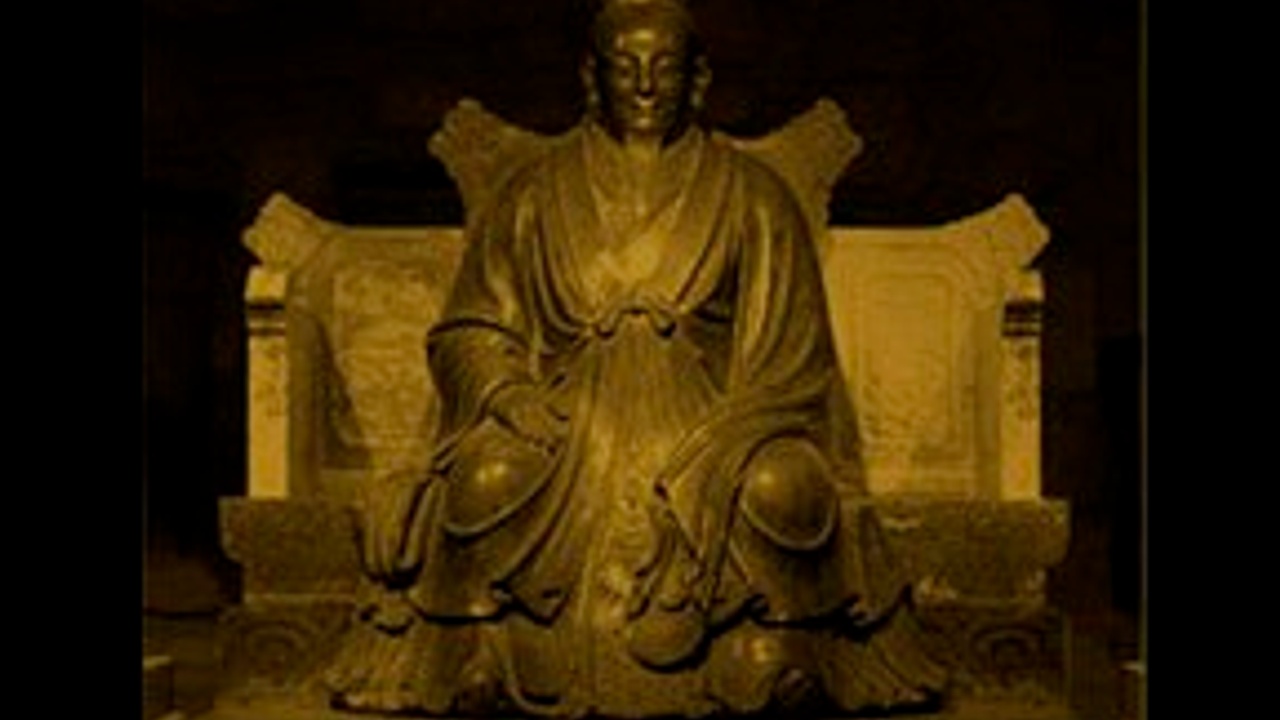
Excerpt from Refining the Elixir
Oct 28, 2022This post presents the Conclusion section to Stuart Alve Olson’s introductory material in his book Refining the Elixir: The Internal Alchemy Teachings of Taoist Immortal Zhang Sanfeng © 2016 by Stuart Alve Olson.
Refining the Elixir
The whole process of internal alchemy, especially in the structure Zhang Sanfeng presents, is really not that complicated. If we look at it purely from the standpoint of first Replenishing the Three Treasures, then learning to Revert Jing to Restore the Brain, and then practicing the Nine Restorations, we are well on our way towards immortalizing our spirit. Although the theory is fairly straightforward, the actual long-term and disciplined practice proves to be the downfall of most practitioners.
No one can really say exactly what internal alchemy is, at least not in the context of it being a regimented and guaranteed step-by-step process, and I feel as though I have only scratched the surface in my explanation of this art, science, and philosophy of internal alchemy. Much of internal alchemy equally relies on a person’s endowments, temperament, sincerity, and discipline. Just as taking piano lessons is no guarantee a person will become a concert pianist, or a person studying art will become a Picasso. The ability to focus in a one-pointed manner, for example, can elude many practitioners until they undergo an extended period learning to completely focus. Some people are born with certain endowments that make internal alchemy easier and others are not, but this doesn’t mean you can’t succeed. Anyone can gain great benefit from the practice provided he or she learns to focus and follow the specifics. As Zhang Sanfeng says, “People who have few extraneous thoughts can obtain the elixir quickly, but those who are inundated with extraneous thoughts are slow to obtain the elixir. The method is simple and quite easy.”
Suffice to say, when we were in our mother’s womb we were naturally performing internal alchemy and had no extraneous thoughts, but after being born we are constantly being distracted and forget what was natural to us. Cultivating, then, is really a matter of remembering and recalling our primal beginnings so we can approach and gain a glimmer of the meaning of what is meant by Realization of Reality (悟真, Wu Zhen) in internal alchemy.
Realization of Reality can be somewhat explained by how we recognize what is conscious and unconscious. When dreaming during the unconscious state we perceive thoughts, experiences, and images as real. When awake and experiencing the conscious state, we also believe our thoughts, experiences, and forms are real. Which state, conscious or unconscious, is truly real? Actually neither, as both are just extremes of the mind, not the true reality of our spirit. When we experience the spirit, we see matters of the unconscious and conscious states as mere illusions of the mind. Experiencing the spirit is what Taoism refers to as a “mystical state.” The mystical state is “reality,” for it doesn’t adhere to or depend on the conscious or unconscious mind because the ego has vanished. When the ego vanishes we are selfless—and selflessness is the state of being of an immortal.
The cultivation of internal alchemy is a path to that mystical state—the True or Reality. Zhuang Zi attempts to explain this in his famous “Butterfly Dream,”
I, Zhuang Zhou, was dreaming I was a butterfly dreaming that I was Zhuang Zhou, but when I awoke I did not know if I was Zhuang Zhou having dreamt I was a butterfly dreaming of being Zhuang Zhou, or if now I am really a butterfly just dreaming I am Zhuang Zhou.
In the end, Zhuang Zhou sees that neither the butterfly or himself nor the states of dreaming or being awake are reality. Reality can only be perceived in the mystical state beyond the conscious and unconscious. In internal alchemy this is Returning Spirit to the Void, the final stage of cultivating immortality, and is the Realization of Reality.
In “The Immortal” chapter in Master of Embracing Simplicity, the great alchemist Ge Hong perfectly sums up internal alchemy:
The method of immortals consists of having a true desire for attaining clarity and tranquility, being unattached to possessiveness and contention, cultivating the ability to see and hear internally, and to be free of being entranced by the emotions.
These four simple statements truly are the essence of what it means to cultivate immortality, and if the reader gets nothing else from this work, I sincerely hope this verse is retained by all those seeking the Tao.
Sign up for our mailing list!
Get monthly newsletters, updates, and Taoist cultivation resources delivered to your inbox.
We will never sell your information.


